#Indian Revolution
Text
#maoism#communism#marxism leninism maoism#maoist#indian revolution#India#communist#marxism#socialism#revolutionary#revolution#mlm#pw
2 notes
·
View notes
Text
Fasciate
Kitty crossed her arms. “You don’t have to keep fighting.”
Kuyili was wrapping her ankle. It wasn’t as bad as it could be. “I have been fighting for my country for almost 150 years. I will not give up on her now.”
“You have lost for over a hundred years.”
“Excuse me?”
“I’m sorry, but you must know you can’t…” Kitty sighed. “You can’t outfight the king.”
“We have outfought a king before,” Kuyili said. She was now dabbing alcohol on a cut on her neck.
“Not lastingly. Not in a way that matters—Kuyili, we could do anything. We have stepped out of God’s hierarchy, out of Darwin’s, out of all of it. We could be free.”
Kuyili had chosen her name over Velu, honoring her general instead of her queen, in part to mirror Kitty. She’d spent decades of her life nursing Kitty back to life, staying in the worst country in the world, only returning home when rebellion broke out again. Kuyii had been given a century with Kitty. She still hadn’t figured out how to explain this to her.
“You can’t just not respond,” Kitty muttered.
“I just…” Kuyili sighed. “I can’t be free until my country is free. It’s that simple.”
#To fasciate is to bind with something like a bandage#to be clear kitty is catriona is katie#whilst kuyili is viola is victor is vidya#creative writing#my writing#library of babel#unedited#original characters#my ocs#vampire heist#vampire oc#indian revolution#inexplicably that's what this story is about rn#colonialism#british empire#world history#colonization
0 notes
Text
Rising Against the Odds: The Revolutionary Spirit of Mangal Pandey
Introduction:In the annals of India’s freedom struggle, there are heroes whose resilience and courage continue to inspire generations. One such trailblazer was Mangal Pandey, a name that resonates with the spirit of determination and rebellion. His unwavering commitment to fighting against oppression and injustice marks him as an iconic figure in India’s struggle for independence. This article…
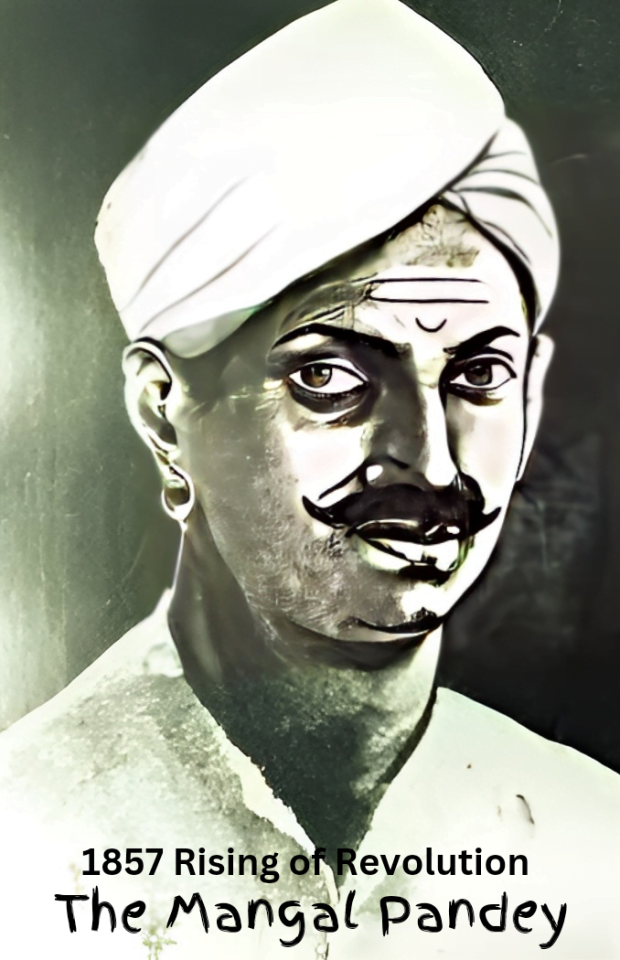
View On WordPress
#Courage#Historical Figures#Independence Struggle#Indian Revolution#Inspirational Leaders#Mangal Pandey#National Heroes
1 note
·
View note
Text
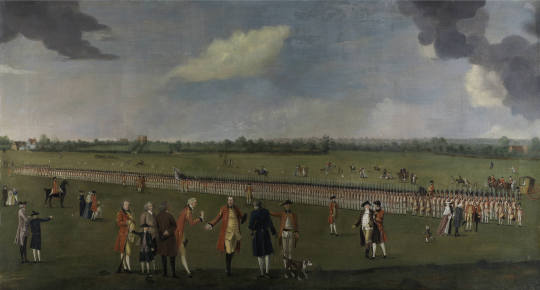
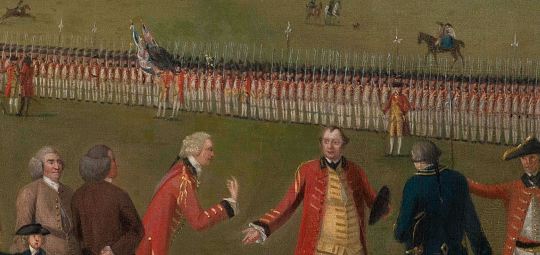
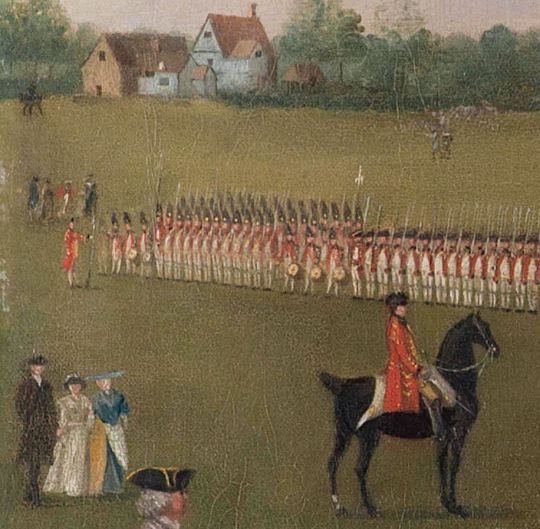
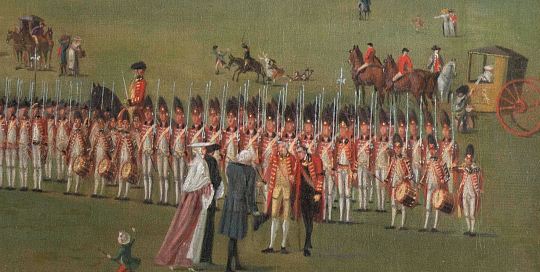
The ever-great David Morier's "Review of the Norfolk Milita," c. 1760. A rare contemporary image showing a full British battalion drawn up. Though militia, they were considered a unit on par with regulars. Also note the grenadier platoons on each wing.
#history#military history#british army#american revolution#18th century#redcoat#redcoats#7 years war#seven years war#french and indian war
112 notes
·
View notes
Text
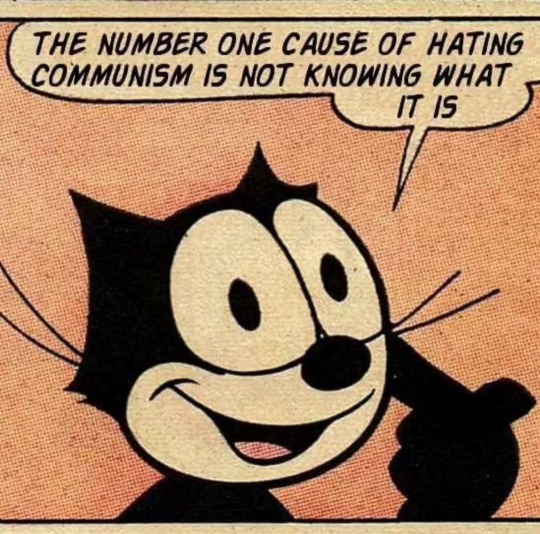
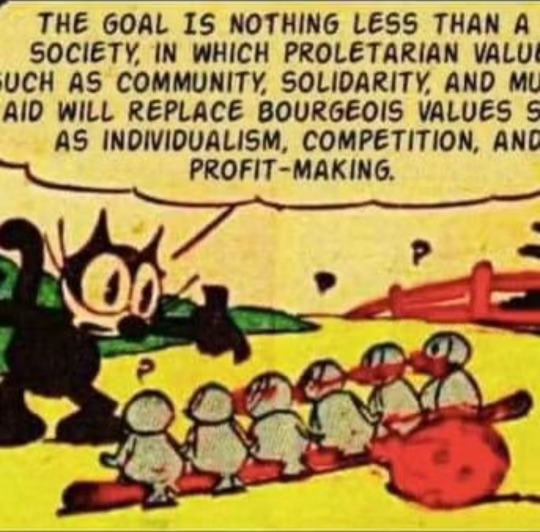

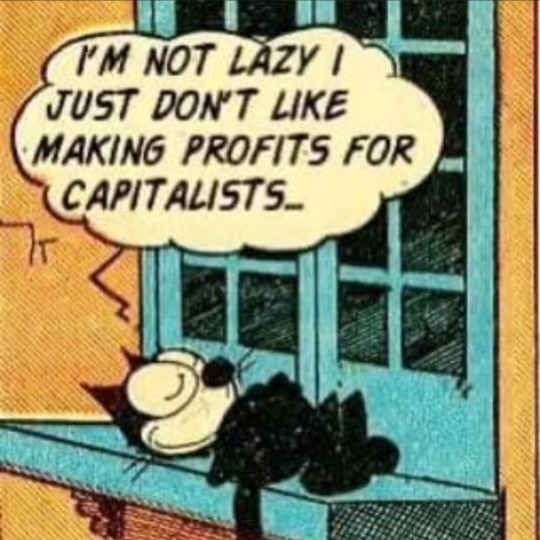
#communism#late stage capitalism#capitalism#lazy#felix#cat cartoon#cats#anti imperialism#revolution#liberation#indigenous#decolonize#indian time#rez life#ndn#n8v#native american
90 notes
·
View notes
Text
white american liberals love seeing poc as victims who constantly have to beg for a shred of white liberals' attention so they may throw some solidarity our way. the moment we refuse to audition for their sympathy and instead empower ourselves to fight back directly against our oppressors, these same liberals are not so comfortable with the idea of us as victims or innocents - how dare we resist or have our own agency? if a poc takes up a rifle after seeing their entire family be killed, and then is bombed by the killers for fighting back against the killers, then is that poc a victim? oh but how could they be? - they had a gun. the gun becomes our symbol of liberation and hope, not mindless vengeance, but as a means for the destruction of the power structures that our oppressor rests on. stop prefacing your support of poc with condemnations of our resistance. negotiations will never free oppressed people because our oppressors do not have a conscience. you cannot reason with somebody who thinks you are inherently worth less. resistance is the only way forward.
remember that the violence of the oppressed is in no way morally equivalent to the violence of the oppressor. and the oppressed do not have to justify the means of our resistance to the oppressors / the sympathizers of the oppressors.
#white ppl will say some braindead neutral shit like violence is bad !! and think ok enough activism for the day#had to write this after seeing some idiot white man write an article about how resistance movements should be held accountable#like shut the fuck up#people who have never lived in your shoes will tell you what to do in your life. how ridiculous#theyre like oh i wouldnt have dome it like tjat . ok? i would. i am doing it like that#i will never condemn resistance to colonialism and occupation and imperialism#most of all i will never condemn any act of aggression against the terrorist gov of the usa the uk and also the eu#to hell with all the bastards who seek to destroy our people#resistance forever#free palestine#glory to the martyrs#long live the resistance#viva la revolution#black panthers#palestinian resistance#kashmiri resistance#kurdish resistance#baloch resistance#algerian resistance#indian resistance#indigenous resistance#indigenous sovereignty#zapatistas#zapatismo#neo zapatismo
34 notes
·
View notes
Text


YOUNG COMRADES,
Our country is passing through a chaos. There is mutual distrust and despair prevailing everywhere. The great leaders have lost faith in the cause and most of them no more enjoy the confidence of the masses. There is no programme and no enthusiasm among the ‘champions’ of Indian independence. There is chaos everywhere. But chaos is inevitable and a necessary phase in the course of making of a nation. It is during such critical periods that the sincerity of the workers is tested, their character built, real programme formed, and then, with a new spirit, new, hopes, new faith and enthusiasm, the work is started. Hence there is nothing to be disgusted of.
We are, however, very fortunate to find ourselves on the threshold of a new era. We no more hear the news of reaching chaos that used to be sung vastly in praise of the British bureaucracy. The historic question “Would you be governed by sword or pen”, no more lies unanswered. Those who put that question to us have themselves answered it. In the words of Lord Birkenhead, “With the sword we won India and with the sword we shall retain it.” Thanks to this candour everything is clear now. After remembering Jallianwala and Manawala outrages it looks absurd to quote that “A good government cannot be a substitute for self-government.” It is self-evident.
A word about the blessings of the British rule in India. Is it necessary to quote the whole volumes of Romesh Chandra Dutt, William Digby and Dadabhai Naoroji in evidence to prove the decline and ruin of Indian industries? Does if require any authorities to prove that India, with the richest soil and mine, is today one of the poorest, that India which could be proud of so glorious a civilisations, is today the most backward country with only 5% literacy? Do not the people know that India has to pay the largest toll of human life with the highest child death rate in the world? The epidemics like plague, cholera, influenza and such other diseases are becoming common day by day. Is it not disgraceful for us to hear again and again that we are not fit for self-government? Is it not really degrading for us, with Guru Govind Singh, Shivaji and Hari Singh as our heroes; to be told that we are incapable of defending ourselves? Alas, we have done little to prove the contrary. Did we not see our trade and commerce being crushed in its very infancy in the first effort of Guru Nanak steamship co-started by Baba Gurdit Singh in 1914; the inhuman treatment meted out to them, far away in Canada, on the way and finally, the bloody reception of those despairing, broken-hearted passengers with valleys of shots at Bajbaj, and what not? Did we not see all this? In India, where for the honour of one Dropadi, the great Mahabharat was fought, dozens of them were ravaged in 1919. They were spit at, in their naked faces. Did we not see all this? Yet, we are content with the existing order of affairs. Is this life worth living?
Does it require any revelation any revelation now to make us realise that we are enslaved and must be free? Shall we wait for an uncertain sage to make us feel that we are an oppressed people? Shall we expectantly wait for divine help or some miracle to deliver us from bondage? Do we not know the fundamental principles of liberty? “Those who want to be free, must themselves strike the blow.” Young men, awake, arise; we have slept too long!
We have appealed to the young only. Because the young bear the most inhuman tortures smilingly and face death without hesitation. Because the young bear the most inhuman tortures smilingly and face death without hesitation. Because the whole history of human progress is written with the blood of young men and young women. And because the reforms are ever made by the vigour, courage, self-sacrifice and emotional conviction of the young men who do not know enough to be afraid and who feel much more than they think.
Were it not the young men of Japan who come forth in hundreds to throw themselves in the ditches to make a dry path to Port Arthur? And Japan is today one of the foremost nations in the world. Were it not the young Polish people who fought again and again and failed, but fought again heroically throughout the last century? And today we see a free Poland. Who freed Italy from the Austrian yoke? Young Italy.
Do you know the wonders worked by the Young Turks? Do you not daily read what the young Chinese are doing? Were it not the young Russians who scarified their lives for Russians emancipation? Throughout the last century hundreds and thousands of them were exiled to Siberia for the mere distribution of socialist pamphlets or, like Dostoyevsky, for merely belonging to socialist debating society. Again and again they faced the storm of oppression. But they did not lose the courage. It were they, the young only, who fought. And everywhere the young can fight without hope, without fear and without hesitation. And we find today in the great Russia, the emancipation of the world.
While, we Indians, what are we doing? A branch of peepal tree is cut and religious feelings of the Hindus are injured. A corner of a paper idol, tazia, of the idol-breaker Mohammedans is broken, and ‘Allah’ gets enraged, who cannot be satisfied with anything less than the blood of the infidel Hindus. Man ought to be attached more importance that the animals and, yet, here in India, they break each other’s heads in the name of ‘sacred animals’. Our vision is circumscribed by…. * thinks in terms of internationalism.
There are many others among us who hide their lethargy under the garb of internationalism. Asked to serve their country they reply: “Oh Sirs, we are cosmopolitans and believe in universal brotherhood. Let us not quarrel with the British. They are our brothers.” A good idea, a beautiful phrase. But they miss its implication. The doctrine of universal brotherhood demands that the exploitation of man by man and nation be nation must be rendered impossible. Equal opportunity to all without any sort of distinction. But British rule in India is a direct negation of all these, and we shall have nothing to do with it.
A world about social servicre here. Many good men think that social service (in the narrow sense, as it is used and under stood in our country) is the panacea to all our ills and the best method of serving the country. Thus we find many ardent youth contending themselves with distributing grain among the poor and nursing the sicks all their life. These men are noble and self-denying but they cannot understand that charity cannot solve the problem of hunger and disease in India and, for that matter, in any other country.
Religious superstitions and bigotry are a great hinderance in our progress. They have proved an obstacle in our way and we must do away with them. “The thing that cannot bear free thought must perish.” There are many other such weakness which we are to overcome. The conservativeness and orthodoxy of the Hindus, extra-territorialism and fanaticism of the Mohammedans and narrow-mindedness of all the communities in general are always exploited by the foreign enemy. Young men with revolutionary zeal from all communities are required for the task.
Having achieved nothing, we are not prepared to sacrifice anything for any achievement; our leaders are fighting amongst themselves to decide what will be the share of each community in the hoped achievement. Simply to conceal their cowardice and lack of spirit of self-sacrifice, they are creating a false issue and screening the real one. These arm-chair politicians have their eyes set on the handful of bones that may be thrown to them, as they hope, by the mighty rulers. That is extremely humiliating. Those who come forth to fight the battle of liberty cannot sit and decide first that after so much sacrifices, so much achievement must be sure and so much share to be divided. Such people never make any sort of sacrifice. We want people who may be prepared to fight without hope, without fear and without hesitation, and who may be willing to die unhonoured, unwept and unsung. Without that spirit we will not be able to fight the great two-fold battle that lies before us – two-fold because of the internal foe, on the one hand, and a foreign enemy, on the other. Our real battle is against our own disabilities which are exploited by the enemy and some of our own people for their selfish motives.
Young Punjabis, the youth of other provinces are working tremendously in their respective spheres. The organisation and awakening displayed by young Bengal on February 3, should serve as an example to us. Our Punjab, despite the greatest amount of sacrifice and suffering to its credit, is discribed as a politically backward province. Why? Because, although it belong to the martial race, we are lacking in organisation and discipline; we who are proud of the ancient University of Texila, today stand badly in need of culture. And a culture requires fine literature which cannot be prepared without a common and well developed language. Alas, we have got none.
While trying to solve the above problem that faces our country, we will also have to prepare the masses to fight the greater battle that lies before us. Our political struggle ‘began just after the great War of Independence of 1857. It has passed through different phases. Along with the advent of the 20th century the British bureaucracy has adopted quite a new policy towards India. They are drawing our bourgeoisie and petty bourgeoisie into their fold by adopting the policy of concessions. Their cause is being made common. The progressive investment of British capital in India will inevitably lead to that end. In the very near future we will find that class and their great leaders having thrown their lot with the foreign rulers. Some round-table conference or any such body will end in a compromise between the two. They will no more be lions and cubs. Even without any conciliation the expected Great War of the entire people will surely thin the ranks of the so-called champions of India independence.
The future programme of preparing the country will begin with the motto: “Revolution by the masses and for the masses.” In other words, Swaraj for the 90%; Swaraj not only attained by the masses but also for the masses. This is a very difficult task. Thought our leaders have offered many suggestion, none had the courage to put forward and carry out successfully and concrete scheme of awakening the masses. Without going into details, we can safely assert that to achieve our object, thousands of our most brilliant young men, like Russian youth, will have to pass their precious lives in village and make the people understand what the Indian revolution would really mean. They must be made to realise that the revolution which is to come will mean more than a change of masters. It will, above all, mean the birth of new order of things, a new state. This is not the work of a day or a year. Decades of matchless self-sacrifice will prepare the masses for the accomplishment of that great work and only the revolutionary young men will be able to do that. A revolutionary does not necessarily mean a man of bombs and revolvers.
The task before the young is hard and their resources are scanty. A great many obstacles are likely to block their way. But the earnestness of the few but sincere can overcome them all. The young must come forth. They must see the hard and difficult path that lies before them, the great tasks they have to perform. They must remember in the heart of hearts that “success is but a chance; sacrifice a law”. Their lives might be the lives of constant failures, even more wretched than those which Guru Govind Singh had to face throughout his life. Even then they must not repent and say, “Oh, it was all an illusion.”
Young men, do not get disheartened when you find such a great battle to fight single-handed, with none to help you. You must realise your own latent strength. Rely on yourselves and success is yours. Remember the words of the great mother of James Garfield which she spoke to her son while sending him away, penniless, helpless and resourceless, to seek his fortune: “Nine times out of ten the best thing that can happen to a young man is to be thrown overboard to swim or sink for himself.” Glory to the mother who said these words and glory to those who will rely on them.
Mazzini, that oracle of Italian regeneration, once said: “All great national movements begin with unknown men of the people without influence, except for the faith and the will that counts neither time nor difficulties.” Let the boat of life weigh another time. Let it set sail in the Great Ocean, and then:
Anchor is in no stagnant shallow.
Trust the wide and wonderous sea,
Where the tides are fresh for ever,
And the mighty currents free.
There perchance, O young Columbus,
Your new world of truth may be.
Do not hesitate, let not the theory of incarnation haunt your mind and break your courage. Everybody can become great if he strives. Do not forget your own martyrs. Kartar Singh was a young man. Yet, in this teens, when he came forth to serve his country, he ascended the scaffold smiling and echoing “Bande Mataram”. Bhai Balmukund and Awadh Bihari were both quite young when they gave their lives for the cause. They were from amongst you. You must try to become as sincere patriots and as ardent lovers of liberty as they were. Do not lose patience and sense at one time, and hope at another. Try to make stability and determination a second nature to yourselves.
Let then young men think independently, calmly, serenely and patiently. Let them adopt the cause of Indian independence as the sole aim of their lives. Let them stand on their own feet. They must organise themselves free from any influence and refuse to be exploited any more by the hypocrites and insincere people who have nothing in common with them and who always desert the cause at the critical juncture. In all seriousness and sincerity, let them make the triple motto of “service, suffering, sacrifice” their sole guide. Let them remember that “the making of a nation requires self-sacrifice of thousands of obscure men and women who care more for the idea of their country than for their own comfort and interest, than own lives and the lives of those who they love”.
#jallianwala bagh#india#indian anarchism#desiblr#desi#naujawan bharat sabha#bhagawati charan vohra#community building#practical anarchy#practical anarchism#anarchist society#practical#faq#anarchy faq#revolution#anarchism#daily posts#communism#anti capitalist#anti capitalism#late stage capitalism#organization#grassroots#grass roots#anarchists#libraries#leftism#social issues#economy#economics
18 notes
·
View notes
Text
"The western focus was not upon a war of independence from Great Britain as much as a war for the opportunity to gain land. Many land speculators, Washington among them, had their sights set on land in the Ohio Valley since the French and Indian War. Land companies were formed and much had been invested in land to the west. However, with the establishment of the Royal Proclamation of 1763, these new lands were out of reach for American colonists so long as Great Britain controlled them."
"Tell me about Ohio" indeed!
#american revolution#those greedy bastards slavering over the ohio valley#william tavington#and . . . george washington?#royal proclamation of 1763#also granted land to officers who fought in the French and Indian War#including 3000 acres to captains#idk who that could possibly be relevant to in this movie though
7 notes
·
View notes
Text
No matter what happens
I will support them.
I will support their voices that are being oppressed.
I will continue to support Iran's common people that are being oppressed by dictatorship.
I will always support all those innocent Jews and Hindus that are were killed during fighting for their rights.
I will always support all those LGBTQ+ people who have tried to and will always try to create a safe place for the younger generation.
I will always support My Afghan Sister and brother whose voices are being drowned by the Taliban.
I will support all of them and will make the world a better place for their sake.
This is a pledge I take for the betterment of the world.
#desiblr#human rights#mahsa amini#iran protests#desi things#iran revolution#indian teen#iran#spilled ink#desi#afganistan#Jumblr#hindublr#war#peace#ukraine#war crimes#taliban#femicide#conservative#male violence#free gaza#palestinian genocide#current events#endisraelsgenocide#free palestine#free afganisthan#free iran#women life freedom#israel
10 notes
·
View notes
Text
Bhagat Singh is one of the most renowned FREEDOM FIGHTERS in India. Do you know what he did?
He bombed the Central Assembly, Delhi on April 8, 1929 from the visitor's gallery.
Yes, he BOMBED an assembly.
I want to clarify that no one died in this incident; it was a pretty feeble bombing and that there were Indian members in this assembly.
But what I do want to talk about is what he said after he was arrested (he made no attempt to run or deny, even condemned his father when he wrote a mercy plea). He raised slogans, Inquilab Zindabad meaning: long live the revolution.
And do you know what his motive was: TO MAKE THE DEAF HEAR.
The bills and laws passed were ignorant to the demands of Indian people, especially workers. And this was his method of making them hear.
No one in India toady questions his intentions and method of resistance. NO ONE. Like I said, he is one of the most prominent freedom fighters in India.
Now lets compare this to the situation in Gaza.
I know a lot of you are going to say that Hamas is a terrorist organisation that killed many innocent Israeli's. So, there are no parallels here. But what I want to talk about is the principle and the method of resistance. It was not a peaceful one, granted. But when has any country ever been able to free itself from the claws of imperialism without use of violence???
But for one second let's consider what the Hamas would look to Palestinians. To people who were forcibly removed from their homes, who saw their relatives and loved ones die of Israeli violence long before Oct 7th or their life expectancy shortened by hunger and disease, their patience drawn thin.
Why would they see Hamas as anything other than freedom fighters, who would have THEIR VOICES HEARD! WHY?
#palestine#save palestine#save gaza#free palestine#israel#tel aviv#save rafah#british colony over india#indian freedom struggle#israel is an illegal occupier#india#bhagat singh#freedom fighters#parallels between freedom struggles#LONG LIVE THE REVOLUTION
8 notes
·
View notes
Text
i'm so sick of my fellow iranians being cringe as fuck on social media and simping for the state of israel out of some insane the enemy of my enemy is my friend mentality like i know this is crazy but you can hate the iranian government without deciding to go full monarchist and act like israelis are liberators of literally anything or anyone
like i'm sorry if the best you can envision for iran is trading one authoritarian for the son of the previous authoritarian (who was literally overthrown bc he was an authoritarian puppet of the united states) solely bc of his name then you hate the iranian people more than i can image
#like why are they somehow hitting the same level of insane cringe as indian nationalists#also stop parroting these dumbass slogans that don't make any sense like iran isnt islamic republic like ok what does that even mean#it makes as much sense as hamas is isis#yall are just saying words that you think sound catchy but are ultimately meaningless#like yeah iran hasnt been an islamic republic for most of its existence#it currently is#that has clearly not worked out and it can and should change but like that's literally factually what it is rn#and it's dumb as shit to act like there ARENT people that do support it#you are never going to gain ground if you accuse literally everyone of being a paid state actor who disagrees with you#or if you see the world in so black and white that you think bc the iranian government is bad israel's government is good#or act like the actual revolution in 1979 WASNT born out of legit grievances#like obviously that went incredibly sideways but like#what is with this insane whitewashing of the shah all of you are so embarassing#sorry i cant rant on twitter bc of the Job so i gotta do it here i am so fucking tireddddddd#i wish the most outspoken public facing iranians weren't all wealthy as fuck monarchists playing activists#while sitting in beverly hills mansions contemplating their next nose jobs and doing absolutely nothing of use like wow you are so brave#it's the same energy as those rich cubans who moved to miami after castro took over#you can argue that the motive for the iranian regime's defiance of israel is not ultimately out of any desire to help palestinians#and frankly i would agree with you#but like in this specific instance i don't actually think their motive matters if it is materially helping palestinians#will it? that remains to be seen#and acknowledging that it could does not suddenly mean you support the regime all of you are so braindead i am tiiiiiired
4 notes
·
View notes
Text
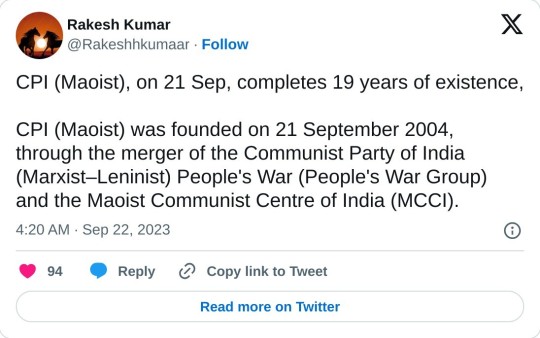
#maoism#communism#marxism leninism maoism#indian revolution#India#maoist#marxism#communist#socialism#revolutionary#revolution#mlm#proletariat#pw#anti-revisionism
6 notes
·
View notes
Text
And now that you've answered that, why not sit back and enjoy a brief history of the American Revolution:
First, the Seven Years War happens. It's mostly thought of as having been fought in Europe, but a campaign (not that kind) is also fought in North America. It is called "The French and Indian War" by the locals.
Britain wins the war against France, and subsequently gets the rights to all land east of the Mississippi river.
Colonialists start moving onto native land, probably with a lot of aggression and arrogance. This is ok so far as Britain is concerned, because they assume that the colonialists can play nice with the natives.
That is not the case. As such, the natives push back against them. 500+ colonialists die during this conflict.
Britain realizes that the colonialists CAN'T play nice and forbids them from going west of Appalachian mountains. Troops are sent to enforce this. Taxes are raised to support the troops, levied mostly on the colonies because they're the reason this mess exists at all.
Wealthy Land / Business Owners get frustrated by Britain imposing its will on the colonies and disallowing them from spreading West. Sure, taxes are bad, but it probably wasn't the little folks paying the lion's share of them, except insofar as the fees associated with them are concerned, but you pay sales taxes, so you know that heavy toll already.
Unhappy working class colonialists don't like paying those extra fees, like any USAmerican doesn't like, but this dislike is further stoked into unhappiness via propaganda until war is inevitable.
France, convinced by wealthy colonialists, backs to revolution as a "fuck you" to Britain ("We can't have land in the Americas? Fine. You don't get your precious colonies, either")
America is born! If you're a wealthy white man you're free to do whatever! Otherwise you can fuck off.
Imperialist conquest of the continent begins in earnest ("but really it's just our Manifest Destiny to control the whole continent so it's alright").
+++++
Ultimately, if they don't benefit the wealthy, any establishment of rights in USAmerica regarding a disenfranchised group only happens after massive civil disruption.
Said rights are never seen as good by the establishment, only as the necessary price for keeping/restoring the peace.
For Example:
The north fought the civil war to keep the south in the union. The south fought the civil war to keep their slaves.
If Lincoln hadn't been killed and his VP hadn't bungled things as much as he did, there would be no amendment regarding slavery, it would be a purely legislative matter, not a constitutional one.
This means that, if Lincoln lived, we'd need to worry about republicans overturning anti-slavery laws too, in addition to everything else.
#american revolution#America#usa#founding fathers#Tax the rich#eat the fucking rich#eat the rich#manifest destiny#the big lie#imperialism#colonialism#westward expansion#north america#seven years war#french and indian war#thirteen colonies#original colonies#taylor polls
3 notes
·
View notes
Text
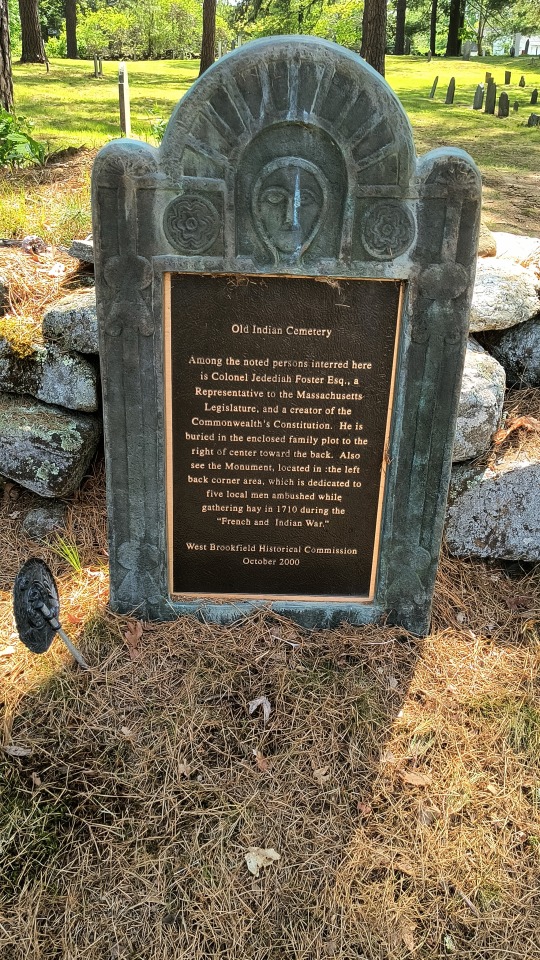
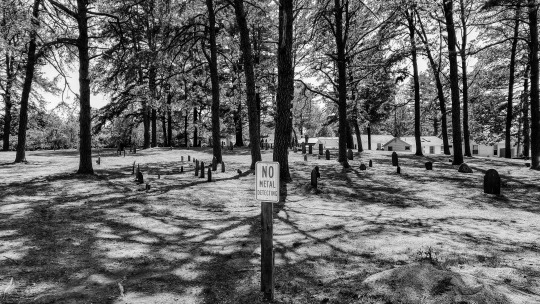
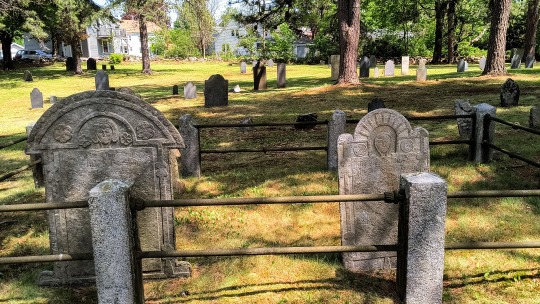
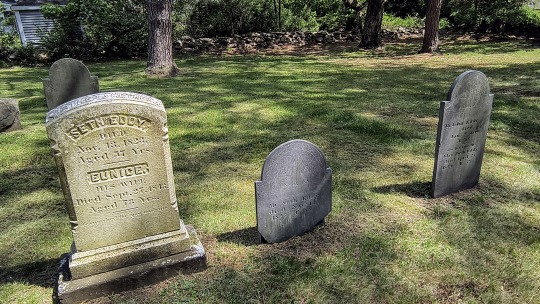
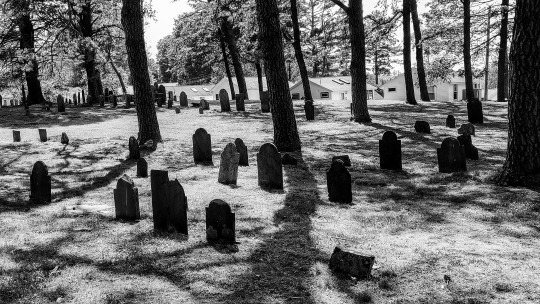



Old Indian Cemetery. Located in West Brookfield MA it was founded way back in 1710. Here's a brief sketch of it's history from Wikipedia:
"The Old Indian Cemetery or "Old Cemetery" is a historic cemetery at 50 Cottage Street in West Brookfield, Massachusetts.
The cemetery was established in 1710 and was an active burial ground until 1849. The cemetery "is the resting place of 16 French and Indian War soldiers, 11 Revolutionary War soldiers, and 6 men who were killed in 1710 by Indians and became known as the Haymakers. It is also the resting place for Jedediah Foster, his wife and daughter, and Diederick Leertouwer."[2] The site was added to the National Register of Historic Places in 2006."
There's some haunting gravestones decorated with beautiful, primitive funerary art to be found at this old burial ground. I really enjoyed my 1st visit to this cemetery.
5/16/23
8 notes
·
View notes
Text
🇮🇳🇨🇦 India suspends Visas for Canadians after Canadian Prime Minister Justin Trudeau accuses India and the Modi Government of assassinating a Punjabi Sikh 'Khalistan' Separatist living in Canada.
#India/Canada row#world news#global news#international affairs#international news#news#canadian news#indian news#socialism#communism#marxism leninism#socialist politics#socialist news#socialist worker#socialist revolution#socialist#communist#marxism#marxist leninist#politics#geopolitics news#geopolitics#workersolidarity#worker solidarity
2 notes
·
View notes
Text
* Guy who is learning about several thousand year old cultures each encompassing over a billion people over very large geographical area using multiple languages voice * Why are Indian names so complicated. Why are Chinese names so complicated
#logxx#😭#Ok well I do strongly suspect a lot of what I've read about Chinese naming practices is mostly archaic pre Revolution stuff#And obviously Chinese family names are pretty straightforward. There are like 7#It's the Indian surnames that are hard to work with
6 notes
·
View notes